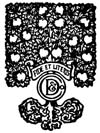
MAKAR’S DREAM
AND OTHER STORIES

VLADIMIR KOROLENKO

MAKAR’S DREAM
AND OTHER STORIES
BY
VLADIMIR KOROLENKO
TRANSLATED FROM THE RUSSIAN WITH AN
INTRODUCTION BY
MARIAN FELL

NEW YORK
DUFFIELD AND COMPANY
1916
Copyright, 1916, by
DUFFIELD & CO.
The writings of Vladimir Korolenko have beenlikened to “a fresh breeze blowing through the heavyair of a hospital.” The hospital is the pessimisticliterature of the modern Russian intellectuals; thefresh breeze is the voice of the simple-hearted childrenof “Mother Russia.” These are for the mostpart tillers of the soil and conquerors of wasteplaces; peasants, pioneers, and Siberian exiles; theyoften belong to the great class of “the insulted andthe injured”: they suffer untold hardships, but theirheads are unbowed and their hearts are full of courageand the desire for justice. Among them thegreat writer’s early life was spent.
Vladimir Korolenko was born on June 15th, 1853,in Zhitomir, a small town in Southwestern or LittleRussia. On his father’s side he came of an old Cossackfamily, his mother was the daughter of a Polishlandowner of Zhitomir. The boy’s early life wasspent amidst picturesque surroundings; he grewup among the Poles, Jews, and light-hearted, dark-eyedpeasants that make up the population of LittleRussia, and he never lost the poetic love of natureand the wholesome sense of humour that were nurtured[viii]in him under those warm, bright skies. In hisstory entitled “In Bad Company” he has vividly describedthe romantic little town that was the home ofhis childhood. The stern but just judge of that taleis more or less the prototype of his own father. Theelder Korolenko was distinguished for an impeccablehonesty of practice rare in an official of those times;consequently, when he died in 1870, he left his widowand five children without the slightest means of support.Thanks, however, to the energy of his heroicmother, Vladimir was enabled at seventeen to enterthe School of Technology in Petrograd.
Then followed three years of struggle to combinehis schooling with the necessity for earning a living,during which Korolenko himself says that he doesnot know how he managed to escape starvation.Even a cheap dinner of eighteen copecks or ninecents was such a luxury to him in those days thathe only treated himself to it six or seven times duringthe course of one whole year.